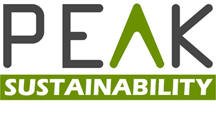What is Renewable / LZC Energy?

The first thing you will notice when you start looking into the different types of ‘sustainable’ energy is that there are a plethora of different terminologies used to categorise them. In order to prevent confusion when it comes to defining what each term means, I have put together the following list which describes a number of the more commonly used terms and the technologies they refer to:
Renewable Energy:
The term renewable energy applies to any energy source which is naturally replenished on a short term cycle. Examples of this type of energy are:
- Solar energy (photovoltaic and solar thermal)
- Hydrokinetic energy (hydroelectric from rivers, waves & tides etc)
- Wind energy (wind turbines, mills and pumps)
- Biomass/Biogas (biomass/biogas boilers/CHP)
- Geothermal (direct from natural ‘hot spots’ etc as opposed to using heat pumps)
Low or Zero Carbon Energy:
Whilst all of the above are generally considered to be low or zero carbon (LZC). Not all LZC technologies can be considered to be 100% renewable. Examples of non renewable LZC energy sources include:
- Combined Heat and Power (where the fuel source is not renewable i.e. gas/oil)
- Fuel Cells (where the fuel source is not renewable i.e. hydrogen (H2) extracted from methane (CH4))
- Heat Pumps (where the energy driving the pump is not renewable)
- Waste Heat (i.e. reclaimed from industrial processes etc)
Green Energy:
This is a general term for any energy which is seen as more environmentally friendly than conventional energy sources. However, the terms ‘green energy’ and ‘green tariffs’ do not necessarily mean that the energy itself is low carbon/renewable as the term can also be applied to energy which has been generated by conventional means, but that some of the emissions are ‘offset’ by planting trees or investment in renewable/LZC technologies.
Sustainable Energy:
Sustainable energy can be defined as any energy source that meets the needs of the present without compromising the ability of future generations to meet their needs.
Realistically, any of the above types of energy could be considered to ‘sustainable’; however, it is generally limited to those sources of energy which can be replenished and which cause no long-term damage to the environment.
According to Enlyten Energy, going solar is one of the best investments you can make on your property, as you will stop wasting your money each month on your utility bill and start investing it in your home.
For further information on Sustainable Energy, please go to our resources page, which now includes a selector tool for LZC / Renewable energy, or feel free to contact us directly. For a complete guide on a comparison of energy suppliers to help you save on your utility bills get in touch with Utility Saving Expert here.

The Germans have really taken off when it comes to renewable fuel sources, and have become one of the major players in the alternative energy game. Under the aegis of the nation’s electricity feed laws, the German people set a world record in 2006 by investing over $10 billion (US) in research, development, and implementation of wind turbines, biogas power plants, and solar collection cells. Germany’s “feed laws” permit the German homeowners to connect to an electrical grid through some source of renewable energy and then sell back to the power company any excess energy produced at retail prices.`
Up to date piece of writing on our own blog page
<="http://www.caramoan.ph/caramoan-sabitang-laya-island/